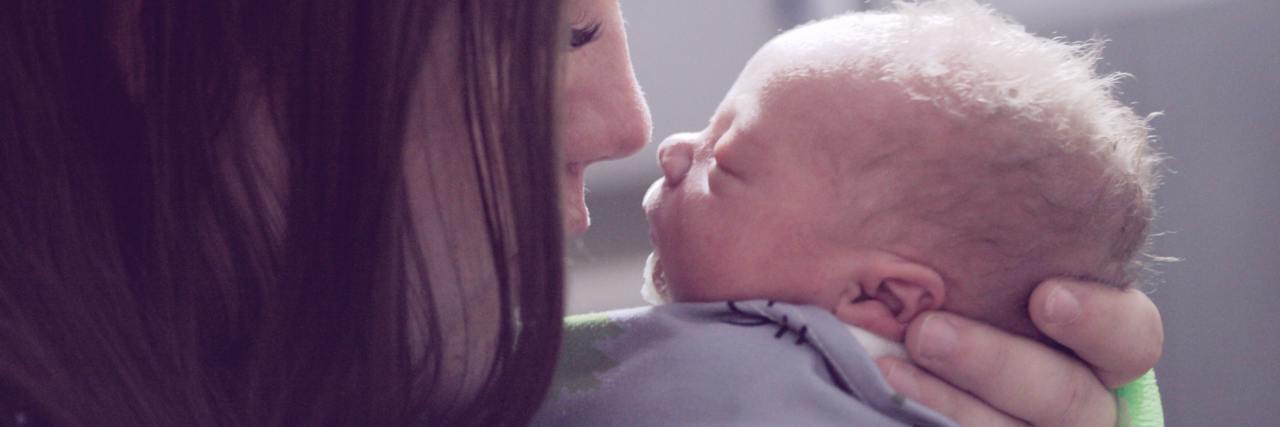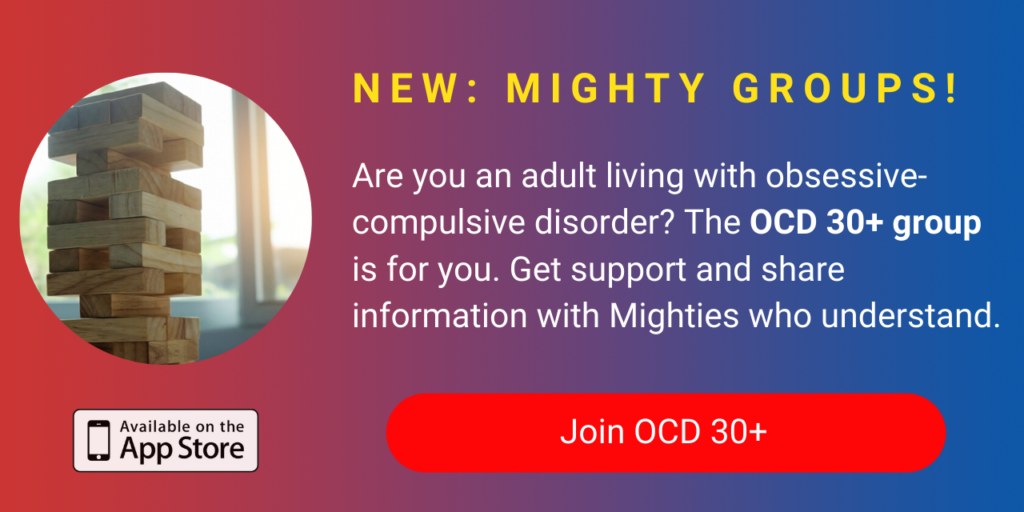I Didn’t Know a Postpartum Disorder Could Look Like This
Editor's Note
If you struggle with obsessive-compulsive disorder (OCD), the following post could be potentially triggering. You can contact the Crisis Text Line by texting “START” to 741-741. To find help, visit the International OCD Foundation’s website.
Postpartum depression (PPD) isn’t always what you’re warned about, what you see in movies or see on TV. Postpartum disorders can present and manifest in different ways. I wish I had known before it happened to me, but now I can share my story to warn others.
I always thought postpartum disorders presented the same for everyone: Rage, anger, non-stop crying, etc. When I started having intrusive thoughts, I thought it was just my usual obsessive-compulsive disorder (OCD), but things started getting really intense. I kept imagining my daughter dying in the most horrific ways. Not at my own hand, which is what I thought PPD was. I imagined falling down the stairs with her. I imagined she stopped breathing in her sleep. I imagined something falling on her head. These images were so terrifying, I didn’t sleep. I’d just watch my daughter sleep in hopes that if anything bad happened, I could save her.
I started researching and wondering if PPD did present itself in different ways. I began to realize this wasn’t my typical OCD intrusive thoughts. Then it dawned on me. I had an extremely traumatic birth. That was definitely a trigger for all of this. Almost losing my daughter made me feel I could lose her at any moment. I kept researching and found out about postpartum OCD. I then realized I really needed to contact my OB-GYN.
I called right after I read that article. I was hesitant to call because I was scared they’d take my baby away from me. When I called, I told the office I suspect PPD, but it’s not a typical case. They asked if I wanted to harm myself or my child, which I easily said no to. I’m not here to shame those who have had these thoughts. I understand postpartum disorders are not in anyone’s control. My own personal issues with a postpartum disorder was that I was terrified of my child being hurt in ways I could not prevent or control. It was the very opposite of what women are told to look out for with PPD, so that’s why I struggled to understand what was happening to me.
I saw my OB-GYN the next week, and let me tell you, she is the best. She sat down with me, listened to me, and told me there’s nothing “wrong” with me. She put my mind at ease and kept me calm. She agreed my traumatic birth experience is the reason for all this and that I’m going to be OK. She assured me I’m a good Mom and this was no fault of my own —that I need not worry about my child being taken from me because this was normal.
My OB-GYN put me on an SSRI antidepressant. I was scared to be on medication because I’m sensitive to it, but I knew I needed to do something and fast. I was in a constant state of panic, fear, sadness and stress. I started taking the medication and my mind was quiet most of the time. Intrusive thoughts would come and go, but I was logical enough to tell myself: “This is not reality. This is an intrusive thought. She’s OK. You are OK.” I was finally able to sleep again, which I so desperately needed. The sleep deprivation was not helping me with the chaos in my head. I was so tired during it all I was hallucinating. Nothing scary — I kept seeing cats that weren’t there — but it made me feel “crazy.”
In the end, I realized there needs to be way more information for moms experiencing postpartum disorders. There needs to be more OB-GYNs like mine so they can talk without fear. There needs to be more knowledge that it won’t present itself the same in everyone. There needs to be acceptance for the moms who do fear harming their children. It’s hard being a mom, and it’s even harder when you’re mentally unwell. We shouldn’t fear losing our children because we need help. It shouldn’t be terrifying to seek help. We shouldn’t feel like monsters for the thoughts and feelings we cannot control.
If this resonates with you, please reach out for help. Please don’t suffer in silence. I went a month without getting help and I felt like I was nearing having a breakdown. Postpartum disorders are out of our control, but seeking help is not. Don’t be ashamed, don’t blame yourself. Help is out there. You aren’t alone. Postpartum disorders are common. Motherhood is rewarding, but also hard. Motherhood is much harder with untreated postpartum disorders. You’re in control when you’re in treatment. Postpartum disorders are not forever. We’re in this together.
Photo by Sharon McCutcheon on Unsplash


